2700 File Virus is a notorious Snatch Ransomware variant created by hackers to encrypt victims’ personal files and force them to pay ransom money. This nasty virus encrypts your files, it appends “.27003” extension to the filenames. For example, if it encrypts a file named “myphoto.jpg” then it would appear as “myphoto.jpg.27003” which you cannot access.
It makes all your files inaccessible and then drops a ransom note “HOW TO RESTORE YOUR 2700 FILES.TXT” on your computer. The note contains a threatening message and a ransom demand. This virus is designed to keep your files 2700ed until you pay the ransom. This guide is aimed to help you remove this virus and restore your files without paying money to hackers.
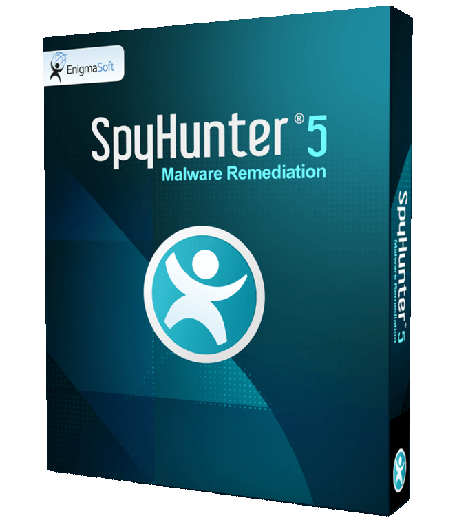
Threats like 2700 File Virus keep getting back on the PC if all associated files are not removed. So you are advised to use a powerful Malware Removal Tool to run a thorough scan of your PC and delete all threats at once.
Compatible with: Windows 11/10/8/7 (32 Bit and 64 Bit)
What is 2700 Ransomware
2700 Ransomware is a harmful file encryption virus which is been reported by researchers to use a strong AES-256 encryption key algorithm to encrypt the files of an infected computer system. Like other ransomware, it also overtakes your confidential data and asks you to pay a ransom from the victim. It generally takes advantage of Windows’ default behavior of hiding the extension from file names to disguise the real extension of the malicious file hidden in it.

Once installed, 2700 File Virus will completely take over your machine. It will encrypt all your personal and important files and add its own extension to the end of all your file names to mark them as encoded using its encryption key. It will demand ransom money to give you the decryption key that may decipher your data and you will be able to access your files. This 2700 Ransomware is a dangerous PC infection that leaves no choice to the user other than to pay extortion fees but it is only aimed to cheat innocent users and thug their money, it will not decrypt your files as it promises.
Ransomware spread in various ways
2700 File Virus mostly intrudes on your computer bundled with free third-party programs that users download from shady websites. Those free applications may carry hidden attachments that can secretly get installed without asking permission. Spam email campaigns are another very often used method of malware spreading. Hackers hide malicious codes in attachments and send them to a large number of potential victims through automated software. When someone opens such an email and downloads attachments, threats like 2700 Ransomware can easily get installed.
Unwanted pop-up ads and forced browser redirects are not only annoying but they can be used for malware distribution too. Cybercriminals use Redirect viruses or adware like an infection to drive traffic to malicious sites which can trigger the download of 2700 File Virus and similar threats automatically. Browsing torrent websites and downloading pirated software could also bring nasty viruses to your computer. So you are advised to steer clear from these activities and scan your PC regularly for potential threats.
2700 Ransomware: Threat Analysis
| Name | 2700 File Virus |
| Type | Ransomware, File-Encrypting virus |
| Extension | .2700 |
| Threat Level | High (Encrypt all your data and Restrict access to your files). |
| Symptoms | Victims cannot access any files on their PC and find Ransom notes asking for money. |
| Damage | It will encrypt your data by adding its extension to file names and demand ransom money for the decryption key |
| Distribution | It is mainly distributed through spam emails, bundled freeware, porn, or torrent sites. |
| Removal | Download SpyHunter 5 Anti-Malware |
| File Recovery | Download Data Recovery Software |
Ransom Message is left by Virus
As soon as the files get encrypted, it will leave a ransom note in every folder on your system to demand ransom money. It may also show a warning message on your computer screen when you try to access encrypted files. The ransom note that has already been placed on your system, contains brief information about encryption, how to recover your files, how much to pay, hackers’ contact details, and the payment method.
Sometimes you may get the dreaded screen from 2700 Ransomware demanding the ransom for which you must not proceed further or take any action in a hurry. Paying the ransom money does not guarantee the decryption of your files safely. Most of the ransomware victims who choose to pay the ransom amount to get the decryption key, end up losing both their files and money.
Few points which show Ransomware infection :
- All your files will be encrypted and you cannot access them.
- Your files will contain strange and unknown extensions at the end.
- A text or HTML file of instructions can be found in every folder.
- Victims will be asked to pay the ransom in Bitcoins for the decryption key.
- All media files like audio, videos, images, documents, databases, etc. will be 2700ed.
What to do after encryption
As said above, 2700 File Virus encrypts the discovered files with a very strong cipher and makes them inaccessible. If your computer is infected by this virus, then it will keep encrypting your files until its removed. This virus can be very hard to remove as it makes various changes to the compromised system and create lots of files. You must remove all the associated files altogether to get rid of 2700 Ransomware at once. We have created a guide that can help you delete this infection. Once done with the removal process, you can also try Data Recovery Software to see if it can restore your encrypted files to their original format.
How To Remove 2700 File Virus
Follow this guide carefully to remove this virus completely from your system. Below you can find step-by-step instructions on how to effectively get rid of this nasty threat easily. Removal of threats like 2700 Virus is never easy, so we have simplified the process for you in several small steps.
Quick Summary of Removal Instructions:
- Automatic 2700 Virus Removal Guide
- How To Decrypt .2700 Files
- Manual 2700 Virus Removal Guide
- Start PC in Safe Mode With Networking
- Kill Malicious Process From Task Manager
- Remove Virus From Windows Registry Editor
- Remove 2700 Virus via system restore
- Prevent 2700 Virus in Future
Please Bookmark This Page by pressing the {ctrl+D} button or print it out on paper before you start the removal process because you may need to restart your PC or browser.
Automatic 2700 Virus Removal Guide
It can be hectic to remove threats from an infected PC but the use of powerful Anti-Malware can make it quite easy. SpyHunter anti-malware can help you to remove Trojans, Ransomware, Spyware, Adware, PUPs, etc. easily. You can scan your system for 2700 virus and all other hidden threats at once. All you need to do is to download this software and run a new scan on your PC.
It will find all the threats and viruses in no time and save you lots of time and effort. This amazing software also provides 24X7 customer support and one-on-one Spyware HelpDesk support for Custom Malware removal. Advanced System Guard feature detects and removes threats in real time. It has a very User-Friendly Interface and regular Malware definition updates make it most effective against the latest attacks.
How SpyHunter 5 Anti-Malware Works
- You will begin by downloading the software on your system for which you have to click on the below download button.
Geek’s Recommendation
Threats like 2700 Virus keep getting back on the machine if all associated files are not removed. So you are advised to use a powerful Malware Removal Tool to run a thorough scan of your PC and delete all threats at once.
Compatible with: Windows 11/10/8/7 (32 Bit and 64 Bit)
- Once the software has been downloaded, double-click on SpyHunter-Installer.exe to install the Anti-Malware program on your PC and proceed with the setup.

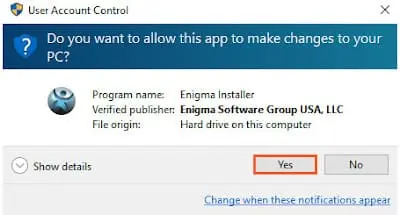
- After installation, you will need to launch the Anti-Malware application. From the welcome screen click on the Start Scan Now button to initiate a new scan of your PC.
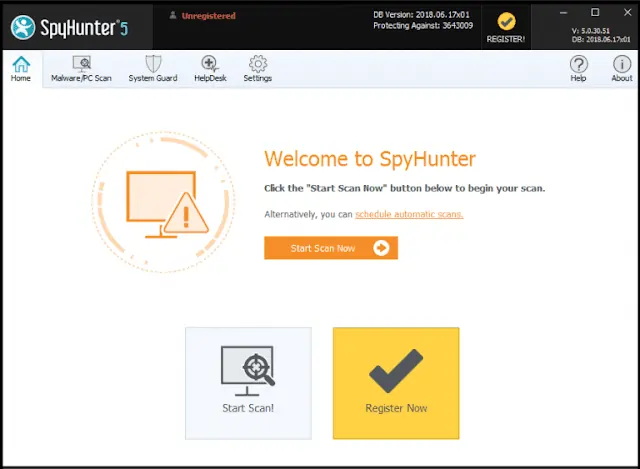
- Once the scanning process begins, it will take some time to run a thorough diagnostic of your PC and find all hidden threats and malware.
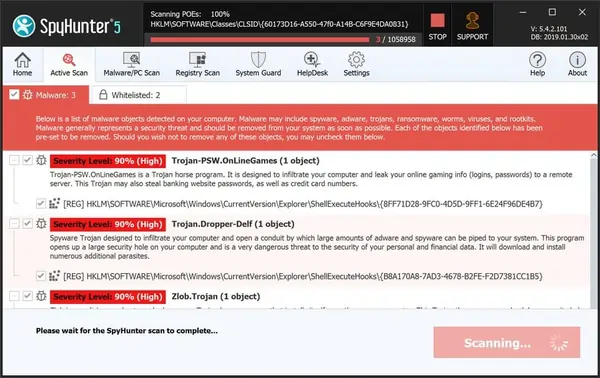
- Soon you will find a complete list of all the threats on your system screen. Then you will need to click on the Next button to delete all the viruses.
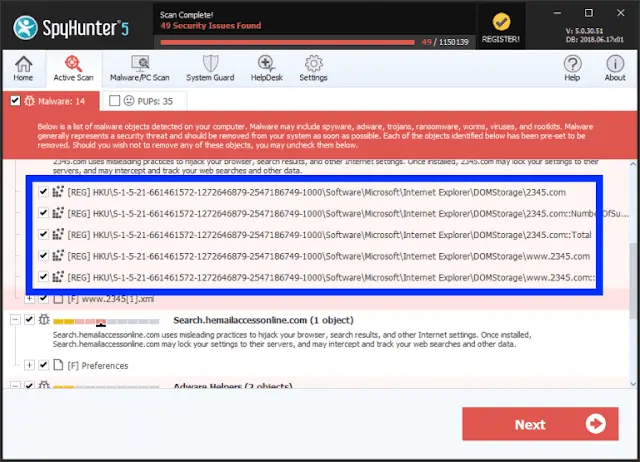
How To Decrypt .2700 Files
As there is no 2700 ransomware decryptor available, you will need to use alternate options to restore your files. The first one is to use the backup. If you have created a backup of your important files then it is going to be quite easy. However, if you don’t have any backup files or they also got encrypted by the virus then you will have to try a data recovery software.
We recommend using Stellar Data Recovery software because it is a powerful and trusted data recovery software. Paying ransom money is not ideal because it will only motivate hackers to carry out more attacks. You can wait for any free decryptor to be launched but it can take forever. Download the free trial version of data recovery and scan your PC for files. It may be able to recover some of your files and save you lots of money.
- Click on the below download button to get started instantly with the data recovery process on your PC.
Download Data Recovery Software Now
- After the download click on the installer file and complete the software installation. Then launch the application and select the Data type to recover, and click the Next button.
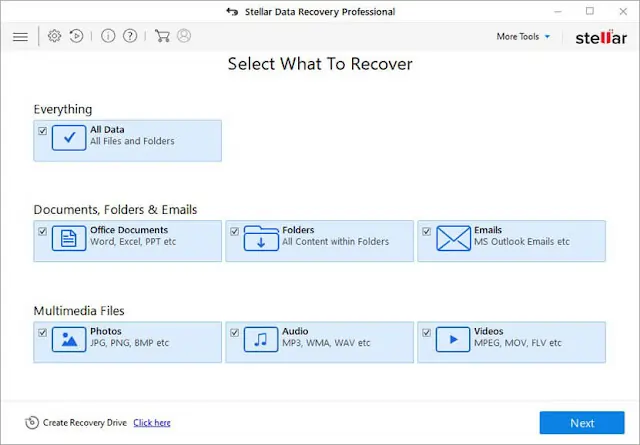
- After the selection of data, you will need to select the location from where you want to recover data. Choose the location and then click on the Scan button.

- The software will take some time to scan your system. You will see a list of all the files that can be recovered. You can preview them or click on the Recover button to save them.
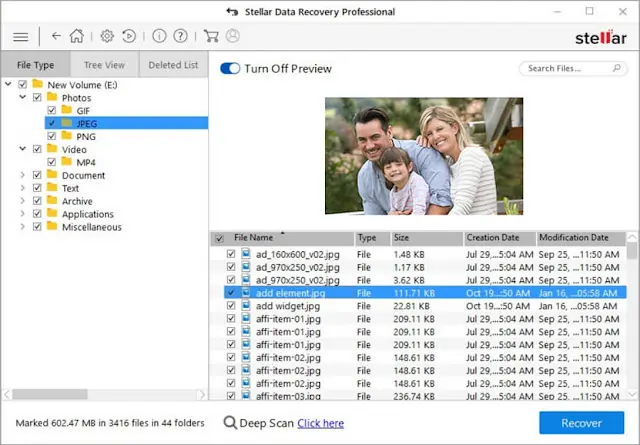
Manual 2700 Virus Removal Guide
Attention! For the safety of your system, please confirm a few things before you begin manual removal:
- You have done this before, which means you have experience in removing the virus manually;
- That you know your way around PC and all necessary processes and applications;
- You know about Registry entry and the Serious repercussions of any mistake;
- Make sure you can reverse any mistake made during virus removal.
If you don’t attain any of the above standards, then manual removal could be a very risky idea. It is most likely best for you to use the SpyHunter 5 Anti-Malware which is totally secure and efficient method.
Compatible with: Windows 11/10/8/7 (32 Bit and 64 Bit)
Start PC in safe mode with networking
- Click on the Windows and R keys together on your keyboard to open the Windows Run Box.
- Now you will need to type in MSConfig and then click the OK button.
- The System configuration settings box will appear on your computer screen.
- Click on the Boot tab, check the Safe Boot option, and select the network box,
- Finally, you will have to click on Apply and then press the OK button.
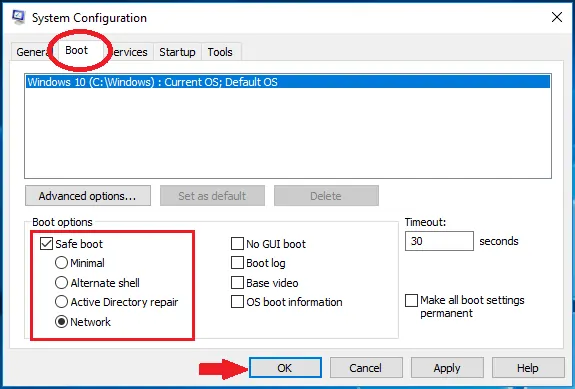
Kill Malicious Process From Task Manager
- Open the Windows Rub box again on your PC by pressing the Windows and R keys together on your keyboard.
- This time you will have to type in taskmgr and then click the OK button to open Windows Task Manager. Look for any unknown or malicious running on your system.
- Select the process which is taking lots of systems resources and then click on the End Task button.
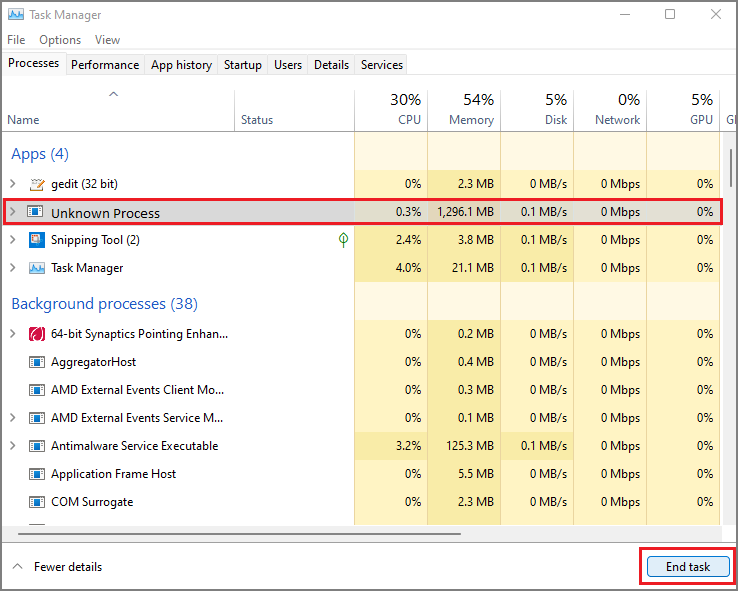
Uninstall 2700 Virus from Control Panel
- Again you will need to open the Windows Run Box, so press the Windows and R keys together.
- This time you need to open the Windows Control Panel, so type in appwiz.cpl and then click the OK button.
- Programs and Features windows will appear on your computer screen with a list of all the installed applications.
- Now you need to look for any unknown or virus related program and then Uninstall it from your PC.
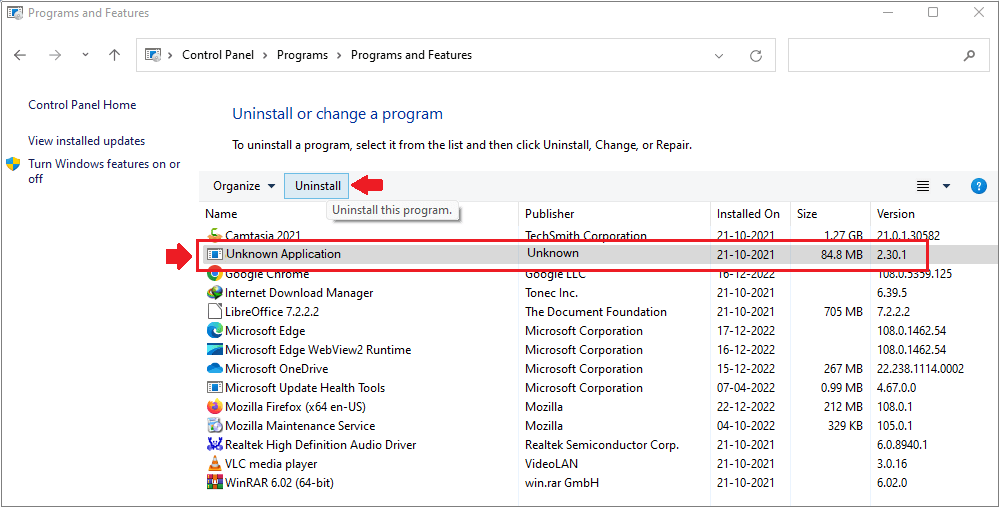
Remove 2700 Virus From Registry Editor
- Again open the Windows Run Box on your PC by using the Windows and R keys.
- To open the Windows Registry Editor, type in Regedit and click the OK button.
- Now you will have to find the virus related registry files and remove them.
- Press CTRL and F keys together on the keyboard to start a Find query.
- Type the virus name and click on Find Next button to find malicious entries and delete them.
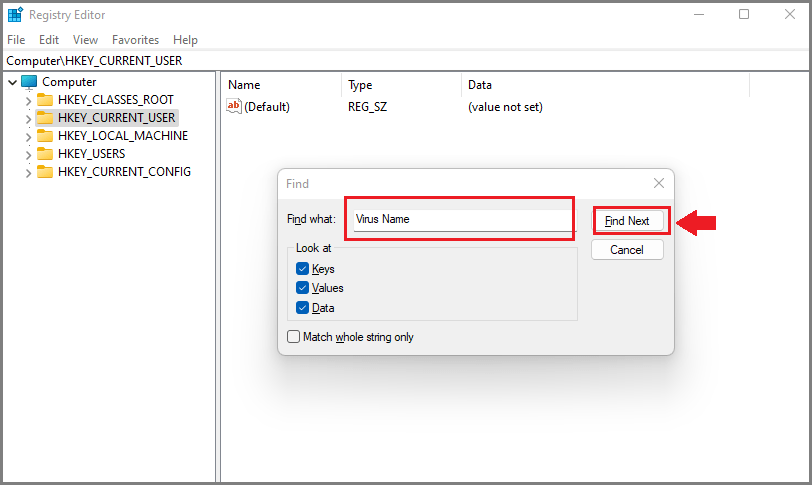
Warning: Meddling with Windows Registry files might not be a good idea if you don’t have advanced knowledge about registry files. Deleting the wrong file can break down your entire system. Proceed at your own risk, or just skip this step. You can choose the Automatic Removal method and avoid all the problems.
Compatible with: Windows 11/10/8/7 (32 Bit and 64 Bit)
Remove Malicious IP addresses from Windows Hosts Files
- To open the Windows hosts file, simply press the Windows and R keys together on the keyboard.
- Type C:\Windows\System32\drivers\etc in Run Box and then click the OK button.
- Now you will need to access the Windows hosts file using Notepad.
- Most threats add malicious IP addresses here to automatically connect to remote servers.
- Delete all the malicious IP addresses below the localhost and save the file.
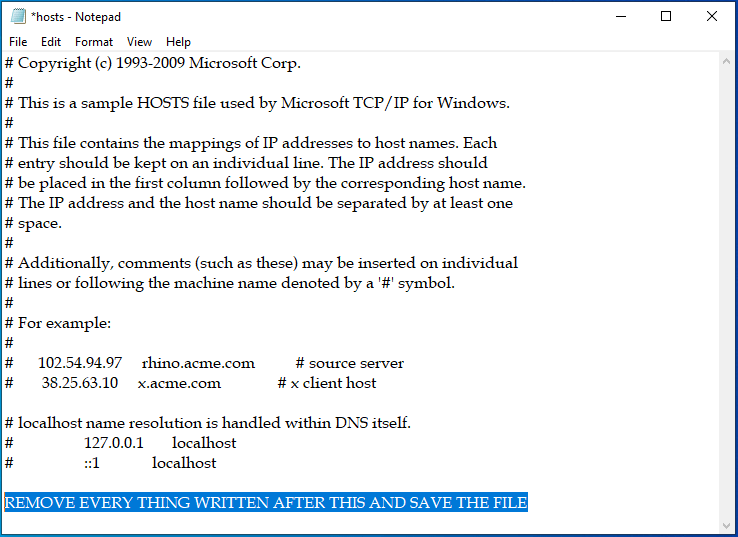
Delete Virus related files from your PC
When malware infects your system, it normally creates several malicious files and spread them at different locations. After you remove the malware, these leftover files help them to get back to your computer. Remove all virus related files at once by following the below instruction :
- Open the Windows Run Box again by using the Windows and R keys together.
- Now you will open the below paths one by one using the Run Box and remove malicious files.
- %AppData%
- %LocalAppData%
- %ProgramData%
- %WinDir%
- %Temp%
For the first four options, look for any recent folder related to the 2700 File Virus and remove them. For the Temp folder, you can delete all the files at once. Use Ctrl, Shift, and Delete keys together for permanent removal.
Remove 2700 Virus via system restore
- You will again need the Windows Run Box, so press the Windows and R keys together.
- Open the Command Prompt by typing in cmd and then clicking the OK button.
- Type cd restore and press Enter, then type rstrui.exe and press Enter.
- The System Restore window will get opened instantly then click on the Next button.
- Choose a System Restore point you have created in the past and click the Next button.
- Finally, when you will hit the Yes button, the system restoration process with start immediately.
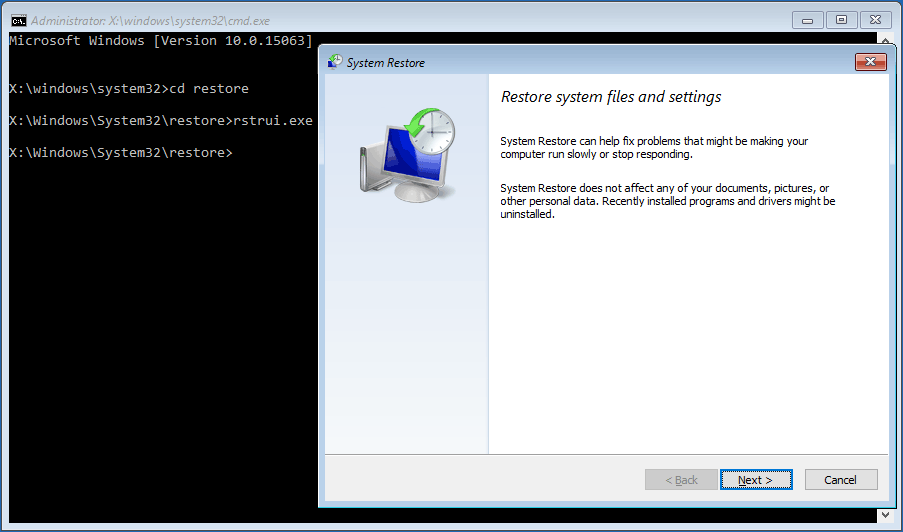
Note: System restore to remove a virus will only work if you have a restore point set on your PC. Otherwise, no changes will be made to your system and it will not remove any threats. Be advised, restoring the computer to a previous version does not always guarantee virus removal. Most viruses delete restore points, so don’t get disappointed if this trick does not work for you.
Prevent 2700 Virus in Future
- Get a powerful Anti-Malware or Anti-virus to fight cyber threats. Free versions do not offer the best protection and cracked security programs can do more damage than good.
- Always keep your Windows firewall active, and your OS updated along with other important programs. Only download updates from official sites or reliable sources.
- Check HTTPS before entering your email, password, credit card details, etc. to any site. Do not visit sites that do not have SSL security. Also, don’t forget to Enable Phishing and Malware protection in Browser.
- Do not download or install any type of pirated software, games, or illegal patches. Avoid using shady sites to acquire freeware programs because they often use software bundling. Never install a program that asks you to inactivate your anti-virus software.
- Avoid opening spam emails from unknown senders. Always scan all the email attachments before opening them. Never click on any suspicious links with some too good to be true offers.
- Connecting your PC or mobile devices to unsafe public Wi-Fi is not a good idea. You can also avoid unwanted threats coming from malicious sites by using a VPN to spoof your connection.
- Keep regular backups of all your important data on external hard drives or cloud drives to avoid data loss in case of a ransomware attack. Also, create a system restore point on your system for security purposes.

Leave a Comment